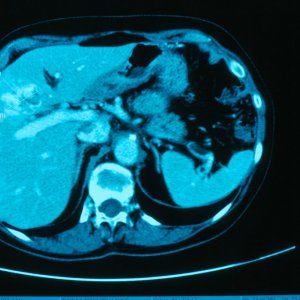One and a half billion people with chronic liver disease. Two million deaths a year. All over the world and here too: every year, in Italy, at least 15 thousand patients die from cirrhosis and around 6 thousand from liver cancer. However, 90% of all these cases would be preventable, with a better lifestyle and adequate health policies. April 19th is World Liver Day, an initiative by the international scientific societies of hepatology to raise awareness of the importance of the liver and how the worsening of lifestyles is having a negative impact.
The liver: 500 functions and 100 diseases
The liver is an organ that is often underestimated and forgotten but it has primary importance: it carries out over 500 vital functions and can therefore be affected by over a hundred diseases, regardless of age, sex, ethnicity. It weighs between 1.2 and 1.5 kg and has a peculiarity: it is able to regenerate itself starting from just 25% of a healthy organ. What is his role? The liver eliminates toxins, filters sugars, proteins and fats from foods, which are then transformed into energy. It interacts with numerous other organs, contributes to the metabolism of sugars and fats and is one of the best protectors of the immune system.
It has no pain receptors
It purifies the blood, filtering drugs and other toxic substances, produces bile and synthesizes the factors essential for clotting. But it has a peculiarity, which is disadvantageous for us: it has no pain receptors and for this reason liver diseases tend not to give symptoms, and this often leads to very late diagnoses, when the pathology is already in decompensated cirrhosis or close to hepatocellular carcinoma. The main cause of chronic liver disease in the world, with 59% of cases, is hepatic steatosis, while the majority of deaths globally are linked to hepatitis B and C, and this despite the fact that for hepatitis C the therapeutic options allow to eliminate the HCV virus.
Hepatitis C: 300 thousand hidden cases in Italy, a record in Europe
11 December 2023
The risk factors
Obviously a family history of liver disease and metabolic and immune disorders are a risk factor. Such as the improper use of some drugs, such as paracetamol. But a sedentary lifestyle, the consumption of sugary drinks, foods with saturated fats and in any case rich in sugar, and the consumption of alcohol also play an important role.
World liver day
World Liver Day is an initiative of the main associations that study the liver. This year’s campaign focuses on prevention and the importance of taking proactive measures to maintain a healthy liver. However, liver diseases are often not included in health policy priorities, when they should be a priority in primary health care plans.
Chronic hepatitis B, stimulate the immune system to eliminate the virus
by Anna Lisa Bonfranceschi
January 11, 2024


“The Italian Association for the Study of the Liver has been engaged in research, scientific dissemination and the training of young hepatologists for over 50 years – underlines the professor Vincenza Calvaruso, AISF Secretary – Chronic liver disease develops silently, causing progressive scarring and cirrhosis, and ranks second after ischemic heart disease in terms of years of working life lost globally. In recent years, important results have been achieved, such as successes in the fight against viral hepatitis, but much remains to be done, especially in relation to pathologies linked to metabolic dysfunction caused by tendencies linked to incorrect lifestyles”.
The decalogue of prevention
World Liver Day marks the start of a decalogue aimed at safeguarding liver health. 1) Avoid alcohol consumption, which causes seven different types of cancer and is one of the most frequent causes of liver disease. 2) Follow a healthy diet (fruit, vegetables, legumes, proteins), reducing complex sugars, foods high in saturated fats and sugary drinks. 3) Get vaccinated against Hepatitis A and B, the latter vaccination also protects against Delta Hepatitis. 4) Have regular check-ups with your general practitioner. 5) Maintain hand hygiene to prevent Hepatitis A and E infections. 6) Avoid sharing contaminated needles, not only associated with intravenous drug use, but also for tattoos and piercings. 7) Practice safe sex to avoid contagion from Hepatitis B and C. 8) Avoid environmental pollutants, which can damage liver cells. 9) Don’t smoke. 10) Exercise regularly to reduce fat accumulation in the liver, increase blood flow and enhance metabolic function.
Liver cancer, anticipating immunotherapy reduces the risk of progression
by Dario Rubino
January 19, 2024


Tags: World Liver Day billion people chronic liver disease preventable









